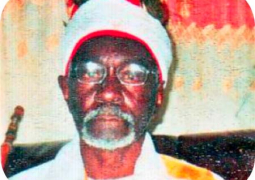
A
three-day sub-regional seminar for farmer organisations on the grain trade in
West Africa recently wrapped up in Ouagadougou, Burkina Faso.
The
regional conference from 29 November to 1 December focused on the grain trade
in West Africa.
The
seminar, which targeted over 200 delegates from farmer organizations, was
coordinated by ROPPA, a sub-regional body, and funded by the Center for
Agriculture Training (CTA).
Speaking
to reporters, the president of NACOFAG, Musa Sowe, a Gambian delegate to the
regional seminar, said the agenda entailed discussions on six principles of
accessibility, whereby farmers should have access to the CE and WRS via
warehouses located within the reach of their farms in the production areas.
According
to Mr Sowe, these warehouses should be in a suitable condition to enable them
have the capability to preserve farmers’ produce and have the equipment to
handle, certify and issue a WR against their crop.
He
said the six principles focused on capacitation, whereby training was provided
to farmers about how to use the CE, WRS and MIS for their own traceability of
their produce.
Transparency
was also discussed whereby the market information generated by the CE is
disseminated openly and freely via channels accessible to farmers.
Mr
Sowe further explained that some of the recommendations that emerged from the
conference centred on communication, on the regional harmonisation of standard
to be generated from ECOWAS, to member states inclusion and participation of
ECOWAS from the beginning.
He
said it was also suggested that the ROPPA taskforce could benefit from EAGC
experience and technical assistance/mentorship and the country taskforce would
then work as the technical working group on standards.
The
NACOFAG president further buttressed the importance attached to these areas of
focus, saying regional trade offers value chain players opportunities to
transcend market constraints at the national level (access to bigger regional
markets), whilst standards are an important
component that enable regional cross border activities.
He
added that a common language on quality and commodity specifics makes it easier
for value chain players to understand each other in trade.
He
said that in many cases inability to meet quality standards has become a
technical barrier to trade.
According
to Mr Sowe, the lack of these aspects hampered trade in many of the regions,
including the Eastern and West African regions.
He
said West Africa should learn from East Africa’s experience in harmonisation of
grain standards.
Mr
Sowe also highlighted some of the concerns raised by NACOFAG, saying
smallholder farmers have had problems meeting quality standards even for
existing market opportunities needed for capacity building.
He
thanked members of the NACOFAG for their commitment and dedication towards the
welfare of the organization, and urged them to work hard as a farmer-based
organisation.


